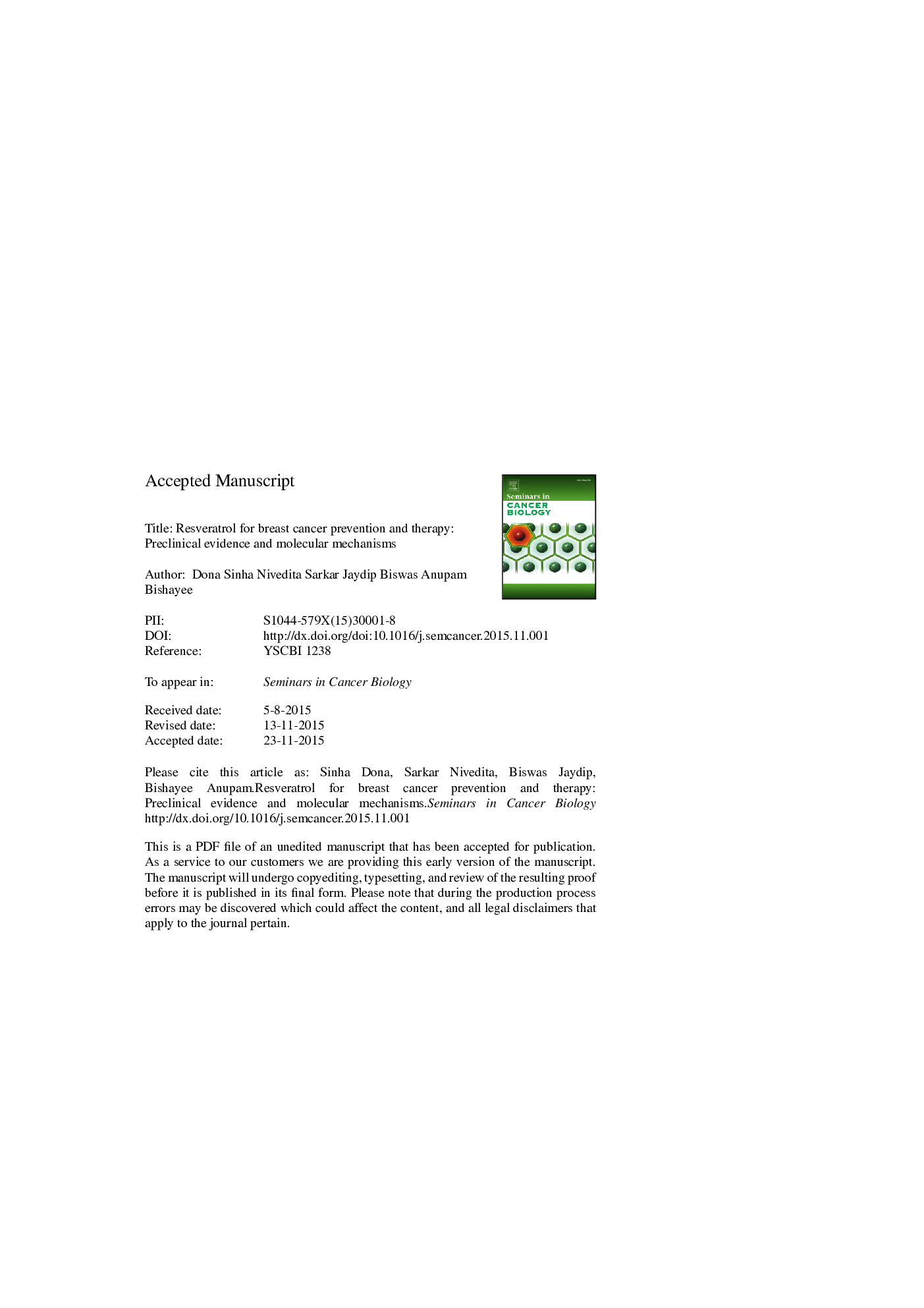| Article ID | Journal | Published Year | Pages | File Type |
|---|---|---|---|---|
| 8362022 | Seminars in Cancer Biology | 2016 | 79 Pages |
Abstract
Globally, breast cancer is the most frequently diagnosed cancer among women. The major unresolved problems with metastatic breast cancer is recurrence after receiving objective response to chemotherapy, drug-induced side effects of first line chemotherapy and delayed response to second line of treatment. Unfortunately, very few options are available as third line treatment. It is clear that under such circumstances there is an urgent need for new and effective drugs. Phytochemicals are among the most promising chemopreventive treatment options for the management of cancer. Resveratrol (3,5,4â²-trihydroxy-trans-stilbene), a non-flavonoid polyphenol present in several dietary sources, including grapes, berries, soy beans, pomegranate and peanuts, has been shown to possess a wide range of health benefits through its effect on a plethora of molecular targets.The present review encompasses the role of resveratrol and its natural/synthetic analogue in the light of their efficacy against tumor cell proliferation, metastasis, epigenetic alterations and for induction of apoptosis as well as sensitization toward chemotherapeutic drugs in various in vitro and in vivo models of breast cancer. The roles of resveratrol as a phytoestrogen, an aromatase inhibitor and in stem cell therapy as well as adjuvent treatment are also discussed. This review explores the full potential of resveratrol in breast cancer prevention and treatment with current limitations, challenges and future directions of research.
Related Topics
Life Sciences
Biochemistry, Genetics and Molecular Biology
Biochemistry
Authors
Dona Sinha, Nivedita Sarkar, Jaydip Biswas, Anupam Bishayee,
